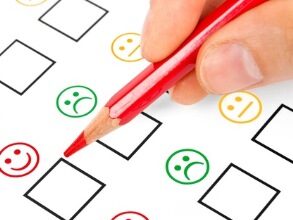 Editor’s Note: Doximity Medical Advisory Board member Felasfa Wodajo, MD (@OrthoOnc), is an orthopedic oncologist in metro W
Editor’s Note: Doximity Medical Advisory Board member Felasfa Wodajo, MD (@OrthoOnc), is an orthopedic oncologist in metro W
 Editor’s Note: Doximity Medical Advisory Board member Felasfa Wodajo, MD (@OrthoOnc), is an orthopedic oncologist in metro Washington, DC and senior and mHealth editor at iMedicalApps.
Editor’s Note: Doximity Medical Advisory Board member Felasfa Wodajo, MD (@OrthoOnc), is an orthopedic oncologist in metro Washington, DC and senior and mHealth editor at iMedicalApps.
When it comes to the motifs of health care as it applies to mobile technology, it’s becoming clearer that we’re beyond the experimentation phase. A few years ago, the fact that you could download an app at all was exciting. Companies like those Steve Jobs first demoed onstage the iPhone in 2008– MIM Imaging and Epocrates–introduced us to a means of obtaining information of high quantity and quality.
Now, we’re starting to see mobile, web and browser-enabled apps geared toward complex disease management. Sophisticated mobile communication platforms like Doximity allow physicians to collaborate on patient care and exchange insights and information whenever and wherever they happen to be.
Below, I’ve pulled together examples of four companies at the forefront of mHealth.
Patient monitoring: Medivo enables physicians to track lab panels for patients with diabetes. Not only can a doctor look at how the data changes over time, but practice groups could in theory track a population of patients. For their part, patients can input their own values and maintain a level of engagement that wasn’t conceivable before.
Active disease management: WellDoc’s DiabetesManager System has come so far as to get the FDA’s green light as an approved disease management solution–a fairly high bar. With WellDoc, patients take blood readings using a wireless-enabled glucometer, and that information is then beamed to their cell phones. From there, users can share that data with the company’s computer system, which analyzes it, generating and sending back targeted advice.
Passive disease management: With Ginger.io, patients don’t have to log data or use any external tools or sensors. This MIT Media Lab product is doing sophisticated data analysis based solely on information it can pull directly from a patient’s cell phone such as change in location, time and frequency of movement, number of calls, etc. All this behavior information can then be analyzed to see how, for example, an Alzheimer’s patient is doing over time.
Passive sensor apps: There’s a great deal of speculation suggesting that the iPhone 5 may contain a near field communication radio, an addition that would allow people to use it instead of a credit or debit card. This would also open new opportunities for mobile health. In anticipation of such a development, a company named Gentag is experimenting with incorporating dermal sodium chloride sensors to NFC chips so that a nearby smartphone can measure salinity of sweat and track medication effectiveness in cystic fibrosis patients.
The last four years have witnessed a progression from one-offs to more sophisticated platforms. We’re beginning to enter the age of integration. The companies above are optimizing this new phase of mobile health knowledge and can, I believe, change how we practice medicine.





_8-250x220.jpg)

